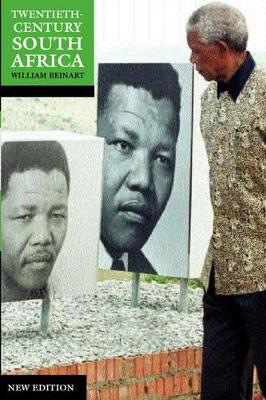OPUS
2 total works
An innovative examination of the forces - both destructive and dynamic - which have shaped twentieth-century South Africa. This book provides a stimulating introduction to the history of South Africa in the twentieth century. It draws on the rich and lively tradition of radical history writing on that country and, to a greater extent than previous accounts, weaves economic and cultural history into the political narrative.
Apartheid and industrialization, especially mining, are central theme, as is the rise of nationalism in the Afrikaner and African communities. But the author also emphasizes the neglected significance of rural experiences and local identities in shaping political consciousness.
The roles played by such key figure as Smuts, Verwoerd, de Klerk, Plaatje, and Mandela are explored, while recent historiographical trends are reflected in analyses of rural protest, white cultural politics, the vitality of black urban life, and environmental decay.
The book assesses the analysis of black reactions to apartheid, the rise of the ANC. The concluding chapter brings this seminal history up-to-date, tackling the issues and events from 1994-1999 - in particular the success of Mandela and the ANC in seeing through the end of apartheid rule. It also looks at the chances of a stable future for the new-found democracy in South Africa.
Apartheid and industrialization, especially mining, are central theme, as is the rise of nationalism in the Afrikaner and African communities. But the author also emphasizes the neglected significance of rural experiences and local identities in shaping political consciousness.
The roles played by such key figure as Smuts, Verwoerd, de Klerk, Plaatje, and Mandela are explored, while recent historiographical trends are reflected in analyses of rural protest, white cultural politics, the vitality of black urban life, and environmental decay.
The book assesses the analysis of black reactions to apartheid, the rise of the ANC. The concluding chapter brings this seminal history up-to-date, tackling the issues and events from 1994-1999 - in particular the success of Mandela and the ANC in seeing through the end of apartheid rule. It also looks at the chances of a stable future for the new-found democracy in South Africa.
South Africa is consistently headline news, for positive as well as negative reasons. Its unique history this century has brought the names of its most famous political activists not only to our television sets but more permanently to names of streets and buildings throughout the West. This study closely examines the social and economic history underlying the political upheavals, and the establishment and fitful but dramatic dismantling of apartheid. It begins with the final colonial conquests at the end of the 19th century and ends with a prognosis for democracy and the redistribution of resources in the 1990s.

